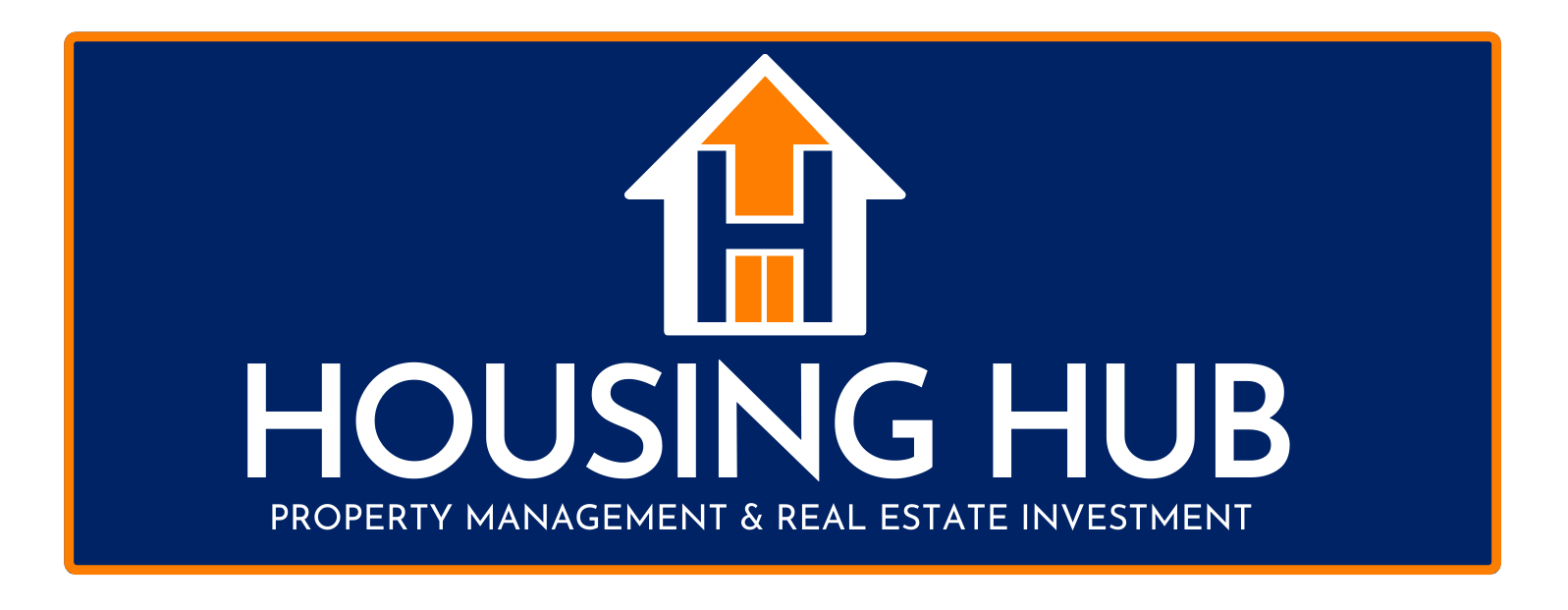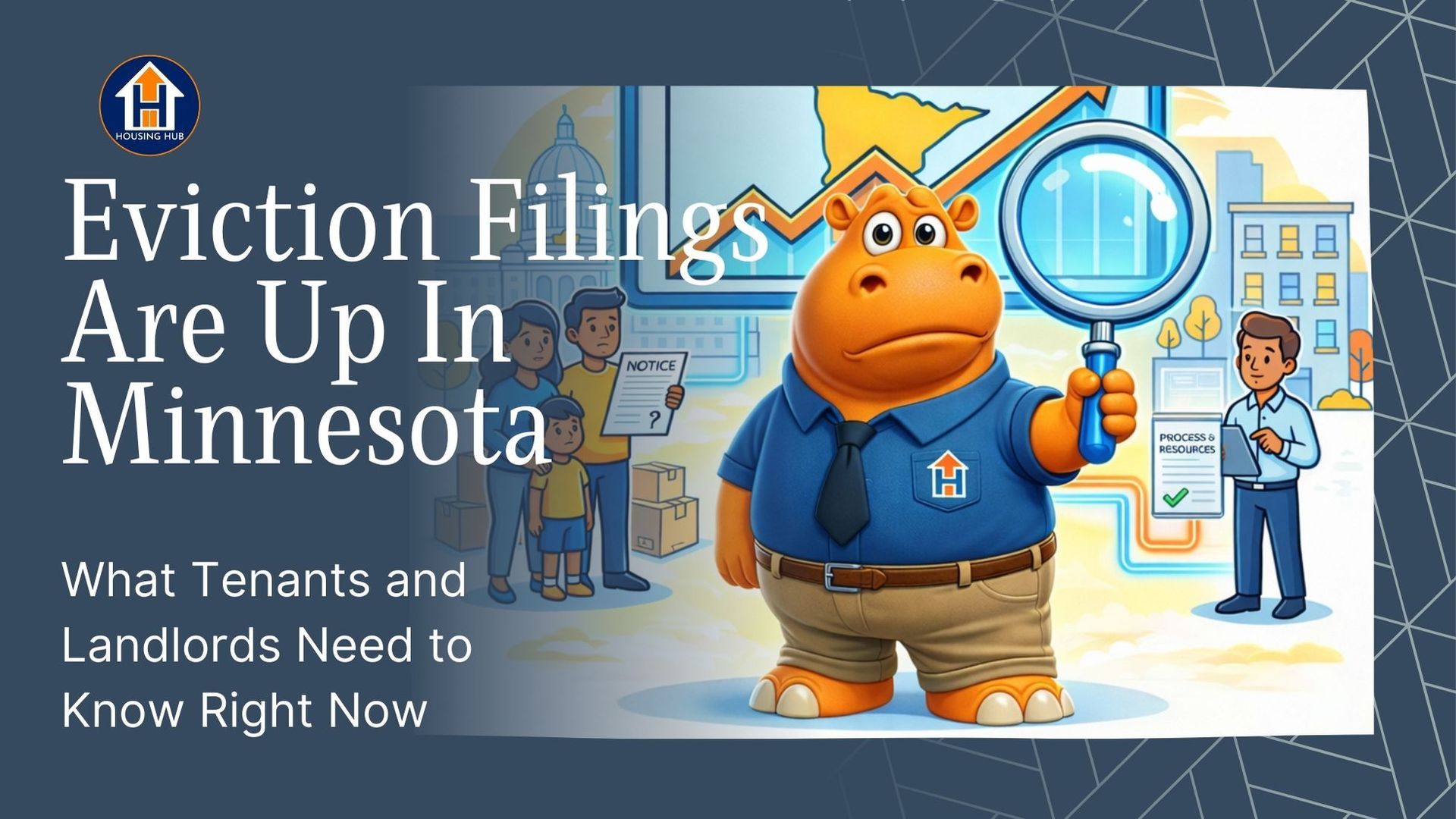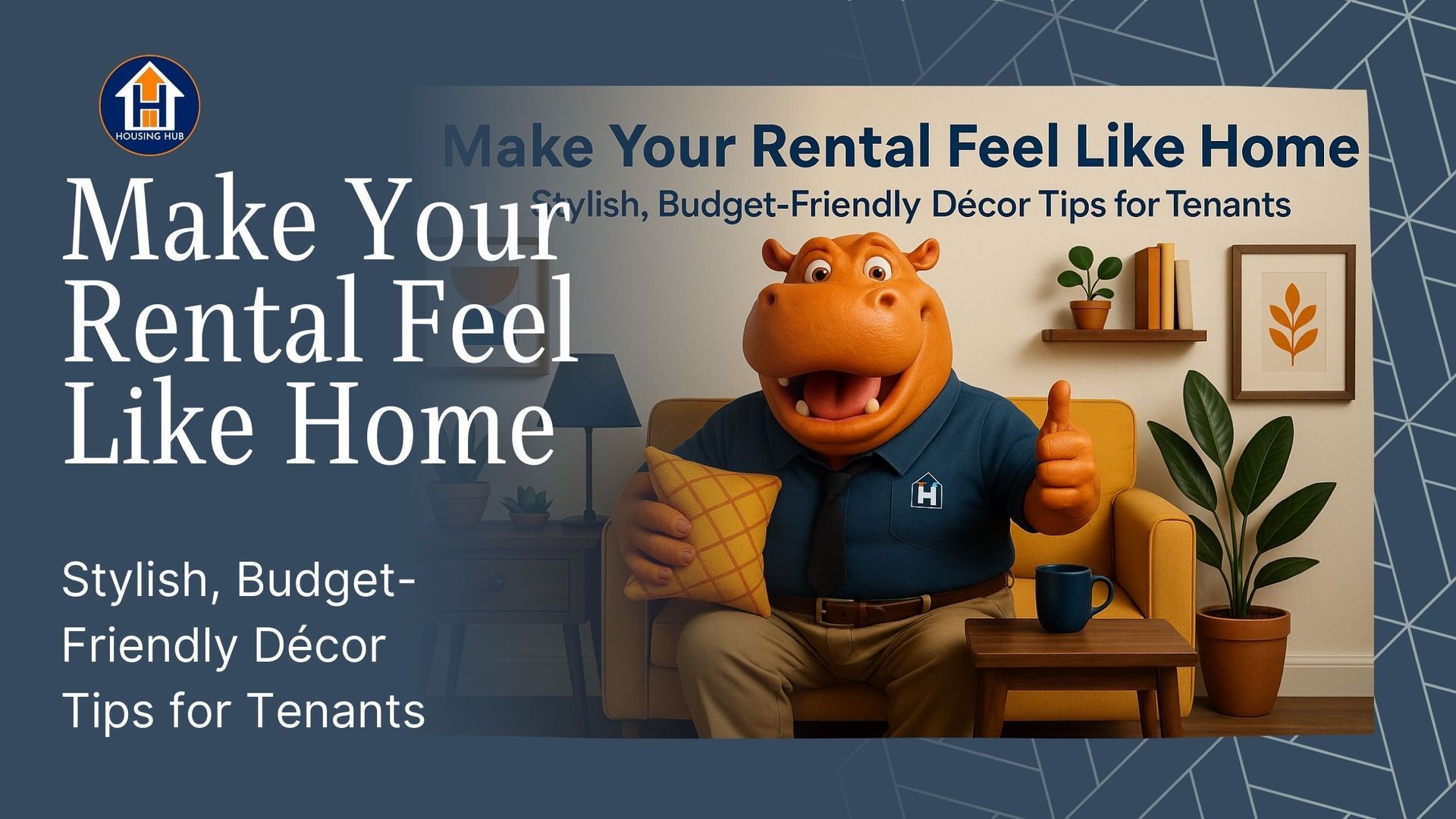Attracting Long-Term Tenants: Strategies for Rental Property Success
A critical factor in the success of your rental property business is the ability to attract and maintain long-term tenants. With the rental market's constant fluctuations and competition, securing reliable, long-term tenants can significantly impact the profitability and stability of your investment. Rental property owners, particularly in the Twin Cities area, need to adopt effective strategies to appeal to potential long-term tenants and create an environment that encourages them to stay. Housing Hub has crafted this comprehensive guide to share valuable insights and practical tips on how we attract long-term tenants to rental properties, ultimately contributing to the growth and success of your investment.
Attracting long-term tenants offers numerous benefits for rental property owners. For starters, long-term tenants provide a consistent and stable source of rental income, enabling owners to better plan for expenses and investments. Additionally, with long-term tenants, the time and expense of advertising, screening, and signing new tenants are reduced, allowing property owners to focus on other aspects of their business.
Moreover, long-term tenants are more likely to have a vested interest in preserving and maintaining the rental property, leading to lower maintenance and repair costs for the owner. Finally, lower tenant turnover rates can contribute to better relationships with your tenants and the surrounding community, creating a more harmonious and desirable living environment.
To enjoy these benefits, rental property owners should adopt a proactive approach by implementing strategies tailored to attract and retain long-term tenants. In today's competitive rental market, it is essential to stand out and continually enhance your rental property's appeal. From understanding your target tenant demographic and offering competitive rent prices to creating well-maintained, high-quality living spaces and providing exceptional tenant support, successful property management requires a multifaceted approach.
Join us as we explore practical strategies for attracting long-term tenants to your rental properties and creating a thriving, successful property investment business. If you need assistance or advice on property management tailored to your unique needs, don't hesitate to reach out to the experienced team at Housing Hub.
Understanding Your Target Tenant Demographic
Knowing your target tenant demographic is essential for tailoring your marketing and property management strategies to attract the right renters. Housing Hub does this as our expert team considers factors such as employment opportunities, local amenities, school districts, and public transportation availability in the areas where your properties are located. By understanding the needs and preferences of your target tenant demographic, you can more effectively market your rental properties and ensure they appeal to potential long-term tenants.
Setting Competitive Rent Prices
Pricing your rental properties competitively is crucial for attracting long-term tenants. While setting a higher rent price might seem more profitable, it may discourage potential tenants or result in higher tenant turnover. Our agents at Housing Hub research the local rental market in the area and compare properties similar to yours to determine a fair, competitive rent price. Offering reasonable rent prices will maximize your property's appeal, making it more likely to attract and retain long-term tenants.
Creating Quality, Well-Maintained Spaces
The quality and condition of your rental properties are significant factors for attracting long-term tenants. Ensure your properties are well-maintained, clean, and up-to-date with modern features and amenities. Regular property inspections, preventative maintenance, and prompt attention to repair requests ensure your spaces remain in top condition and build trust with your tenants. Housing Hub does this by having our expert maintenance team provide detailed inspections of units and perform a multitude of preventative maintenance repairs. With high-quality, well-maintained rental spaces, your tenants will be more likely to feel satisfied and remain in your property long-term.
Providing Exceptional Tenant Support
Providing excellent customer service is key to fostering strong, long-lasting relationships with your tenants. Prompt, attentive responses to tenant inquiries and concerns demonstrate your dedication to tenant satisfaction, building trust and loyalty. Establishing open lines of communication and being approachable makes your tenants feel valued, increasing the likelihood they'll choose to stay in your rental property long-term.
Be Open to Variable Lease Terms and Offer Incentives
Offering flexible lease terms and incentives can further entice tenants to stay long-term. Consider providing options for longer lease terms at a reduced rent or offering small incentives, such as a rent discount or appliance upgrade for tenants who renew their leases. If you are ever unsure, you can work with us to get our professional advice. Providing these incentives can make your rental property more appealing to potential long-term tenants and encourage current tenants to stay.
Building a Positive Community Atmosphere
Creating a positive community atmosphere within your rental properties is another valuable strategy for retaining long-term tenants. Hosting occasional community events, such as barbecues or holiday parties, can foster a sense of camaraderie and belonging among your tenants. Establishing strong relationships between tenants and their neighbors often leads to a more enjoyable living environment, making it more likely that tenants will want to stay in your property long-term.
Regularly Reviewing and Updating Your Strategies
The rental market is continually evolving, so it's crucial to regularly review and update your strategies for attracting long-term tenants. Stay up-to-date on market trends, rental legislation, and emerging tenant preferences to ensure your properties and management practices remain competitive and appealing to potential long-term tenants. Since the owners of Housing Hub are property owners themselves, our company has helpful connections with local legislators, we know inspectors by name, and we understand local programs, such as 4D Affordable Housing.
Attracting long-term tenants is an effective strategy for ensuring the growth and success of your rental property business. By understanding your target tenant demographic, offering competitive rent prices, maintaining high-quality spaces, providing exceptional tenant support, and fostering a positive community atmosphere, you can increase your property's appeal and encourage tenants to stay for the long haul. If you're looking to optimize your rental properties and management practices to attract long-term tenants, contact Housing Hub today for expert guidance and
property management services tailored to your unique needs.






